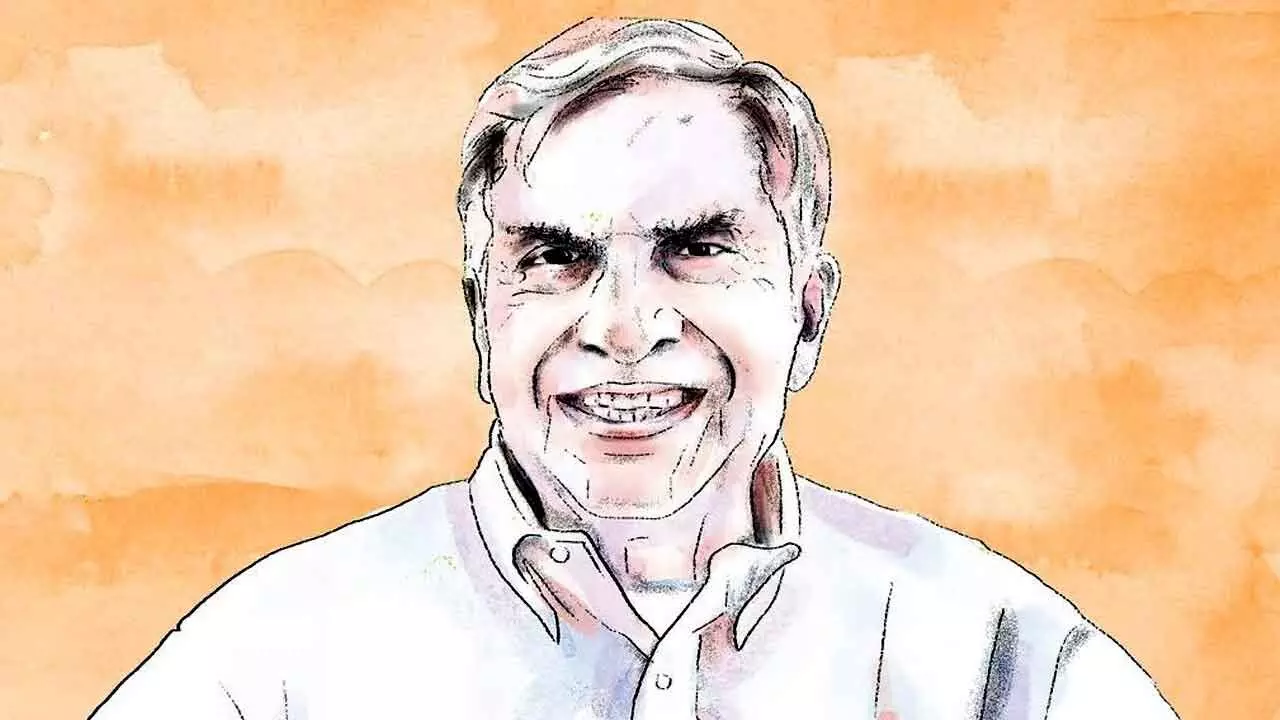Homage to Tata from an environmentalist

As we mourn the passing of Ratan Tata, let’s also mourn the passing of the time when business leaders like him ruled our world; when values of frugality and simplicity in personal life were cherished; and when business was not only about private gain but also about securing public good
Our first interaction with the late Ratan Tata was not pleasant. Delhi was choking with pollution; our campaign on the right to clean air had been launched. Diesel was a fuel that was being indicted for emissions of tiny particulate matter, PM2.5—this was all new in the mid-1990s, as science was discovering how fuel and vehicle quality, when improved, would lead to an unexpected outcome of smaller particulates, which could go deep into our lungs. So, my late colleague Anil Agarwal and I wrote about the dangers of diesel. And we promptly got a defamation notice of some consequent sum of money from Tata Motors. That was the time when Ratan Tata had just launched his car enterprise; it was riding on the change of fuel—diesel, which would give his company an edge over the petrol variants of Maruti Suzuki and others. We were not the kind to back down. Nor was he. It was a messy battle in the highest court of the country.
But slowly what did go was anger in this contest. As the matter proceeded, I realised that Ratan Tata was driven to the case genuinely believing that we were doing this on behalf of his competitors—petrol car guys. But once it was established that our campaign was based on the emerging science of PM2.5—and the health impact of diesel as an automotive fuel—the mood changed. This is not to say that Tata Motors backed down from its diesel car ambition—to the contrary. And it is not as if we gave up our fight against diesel vehicles. But it settled into what you can say was good old-fashioned democratic traditions of acceptance of contrary views. In fact, when Ratan Tata launched his pet project, the Nano cars, at the Delhi automobile exhibition, he called out my name, saying that he hoped this affordable vehicle would meet my approval. Amazing and humbling.
My second experience was more personal, but equally touching. I was at a rather high-level lunch table—this was during former prime minister Manmohan Singh’s time. It was a table of the rich and powerful, and Ratan Tata was explaining how his automobile company now catered to every segment of India’s population. He had just bought the iconic Jaguar in the UK, which was the car of the famous, and had launched the Nano for the first-time buyer. I intervened and said he had forgotten something. I could see the worried glint in his eyes as he expected the activist in me to say something inconvenient. But I said that he had forgotten to list the fact that Tata Motors also made buses and that these moved more people—many thousands more than cars—and that his buses were now modern (the low-floor bus had just been launched) and clean (running on CNG). There was appreciation all around. As it always happens, the conversation then moved on to other banalities and I thought the matter was over. But no. A few days later I got a visit from a top executive of the Tata Motors. I presumed that it was about our anti-diesel campaign. He said he was not from the car side of the Tata but from the bus business. He asked what I had said to Ratan Tata; I asked why he was asking and then he explained. The fact is that after my lunch-time comment to his boss, he had got a call, asking what was this amazing work that was happening that even (I am stressing this because this was really his bemusement) Sunita Narain appreciated and praised it. I was then told that this led to huge interest from the high boss in mobility transformation and the role of modern buses to move people and not vehicles.
I am writing this today not because I want to show off my interactions with the great man. But to explain what, in my view, this greatness was about—an ability to listen and to accept different positions, however inconvenient. I am also saying this because of what we have seen from other industry leaders. When I look back, the most aggressive and obnoxious reactions to our work came from the two multinationals when we revealed our study on pesticides in their product. Their response was to dismiss us, saying that they could not be wrong because they were what they were—US-based companies. Their arrogance was absolute. The second worst response we have had is from companies manufacturing pesticides—we continue to face a barrage of threats, intimidation tactics and legal cases on our work against toxins in food. There is no understanding here that our work is not personal, but about the other side of business and that balance is all what we seek.
So, as we mourn the passing of Ratan Tata, let’s also mourn the passing of the time when business leaders like him ruled our world; when values of frugality and simplicity in personal life were cherished; and when business was not only about private gain but also about securing public good. Let’s hope that when we pay homage to Ratan Tata, we also reject the idea of that obscene lavishness of the powerful of today; and that we pledge to bring back the idea that dissent is not dissent, it is the idea that we did not know existed.
(Courtesy: https://www.downtoearth.org.in/; Writer is Director General of CSE and editor of Down To Earth, an environmentalist who pushes for changes in policies, practices and mindsets)








